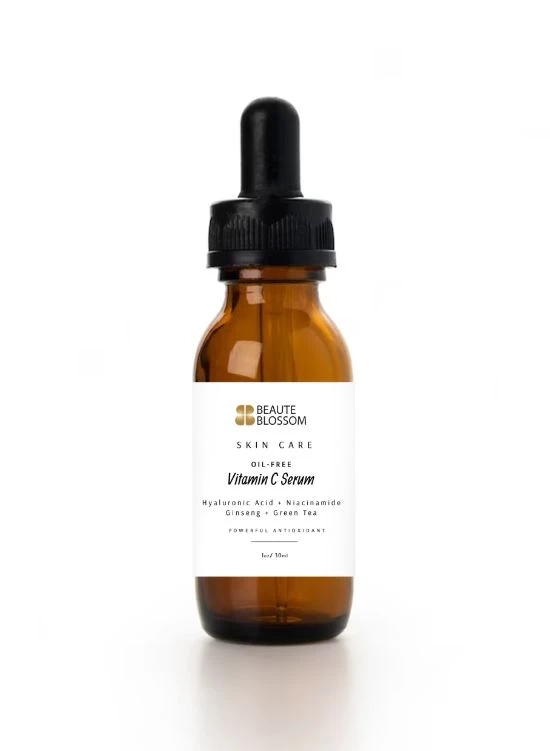Skincare experts advocate vitamin C-based treatments for their skin and serums for their number of advantages including improving skin tone, decreasing hyperpigmentation, and lessening the signs of the aging process.
A lot of manufacturers package vitamin C products in serums. They are more liquid in consistency than creams and lotions.
This article will explore the many cosmetic benefits associated with Anti Aging Vitamin C Serum as well as some possible adverse effects to taking into consideration.
1. Sun Protection
Vitamin C acts as an antioxidant. It is a result of the damage free radicals could otherwise cause to your body. Free radicals are the particles that cause inflammation.
As per the Linus Pauling Institute at Oregon State University the Linus Pauling Institute at Oregon State University, some of the antioxidant effects Vitamin C can have on the skin are:
reducing premature cell deathThe reduction in the production of cytokines which are anti-inflammatory compoundslessening the damage caused by exposure to the ultraviolet (UV) lightAlthough it is not recommended to substitute sunscreen with vitamin C topical for protection against sun damage, using vitamin C on the skin could help to protect yourself from the damaging effects of the sun.
2. Preventing Premature Aging
Vitamin C can't help reverse the appearance of wrinkles which occur naturally with the passage of time. However, Vitamin C Anti Aging Serum can aid in reducing premature aging by protecting the skin from premature wrinkles caused by sun exposure that can trigger.
Vitamin C aids in reducing wrinkles that are premature by stimulating the development of collagen. Collagen is an amino acid that gives structure and elasticity to the skin.
A study of a small size found that using a 5 percent vitamin C solution for six months helped to increase the thickness of the skin compared to the placebo solution. The skin with more collagen is less prone to showing wrinkles as compared to skin that is thinner.
Even though the study involved only 60 participants, it does show the potential of the role of vitamin C's role as a collagen booster.
3. Create A Skin Tone That Is Even
A few people use topical vitamin C to combat hyperpigmentation. The skin's areas appear darker than the surrounding area. Exposure to sunlight or hormonal changes associated with aging is the most common cause of these areas appear darker.
Researchers have proposed that vitamin C could assist in reducing melanin production in accordance with research conducted by the Linus Pauling Institute at Oregon State University.
Melanin is the pigment that is responsible for the darker appearance of hyperpigmented regions. By reducing its production, people can reduce the appearance of dark areas.
What Is The Process By Which Anti Aging Vitamin C Serum Functions?
Manufacturers face a variety of issues when it comes to creating targeted vitamin C applications due to the fact that vitamin C's breakdown can occur when exposed to factors like heat, air, and light.
Certain preparations contain ascorbic acid which is vitamin C's natural form. The skin is able to absorb ascorbic acid however it doesn't always perform well when mixed with specific solutions. Ascorbyl palmitate is more stable when mixed with other solutions however, the skin absorbs it less efficiently.
Skin care manufacturers pack Anti Aging Vitamin C Serum since they can offer more vitamin C levels that the skin absorbs rapidly.
The majority of manufacturers formulate serums as oil- or water-based products that the skin will quickly absorb. Certain manufacturers will infuse vitamin C to ensure it is not exposed to air until the person rubs it onto their skin. This will reduce the amount of time vitamin C needs to be broken down.
Dermatologists Recommendation
Most dermatologists suggest applying serums after cleansing your skin before applying moisturizers. This lets the skin absorb the Vitamin C Anti Aging Serum in the best way possible.
Manufacturers can mix vitamin C and other antioxidants to enhance the efficiency of the serum. For instance, vitamin E and ferulic acid. These ingredients could be more effective when combined to combat and reverse age-related signs.
Vitamin C is extremely acidic, and serums could cause skin irritations in certain individuals, especially in high doses. If you are using an Anti Aging Vitamin C Serum for the first time, use a light layer of it on a daily basis, gradually increasing to daily application.
Additionally, mixing vitamin C and retinol have the potential of irritating the skin even more. If a person is using Retinol as part of their routine for skin care it is recommended to apply Vitamin C Anti Aging Serum in the morning, and other cosmetics that include retinol during the evening. This technique maximizes the sun-protective effects of vitamin C and minimizes the possibility of retinol increasing the sensitivity of your skin to sunlight.
Are There Any Adverse Negative Effects?
Like any other skincare product, there are people who have side effects from applying Vitamin C products. Some of the most commonly reported adverse effects are:
Itchingrednessskin irritationA tingling sensation is felt on applicationAlthough some individuals may feel mild discomfort or burning while applying the Vitamin C Anti Aging Serum, the sensation is unlikely to last all day. If someone experiences persistent burning or symptoms that indicate an allergy such as hives, or swelling, or swelling They should cleanse their skin in order to eliminate the serum.


